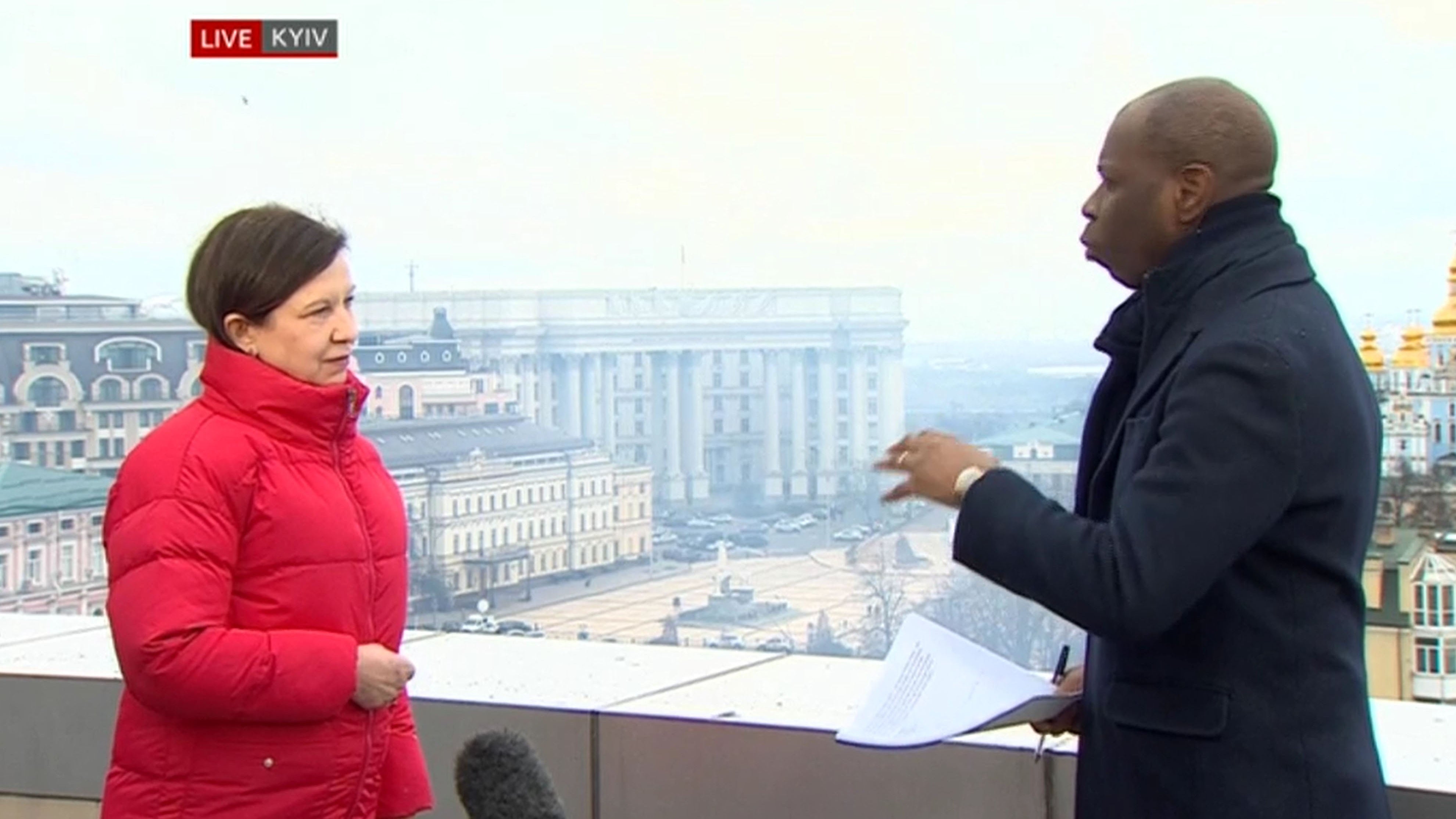Anything can happen reporting from a live warzone, says Clive Myrie
The BBC journalists had to wear flak jackets after a siren interrupted their live Ukraine broadcast.

Your support helps us to tell the story
From reproductive rights to climate change to Big Tech, The Independent is on the ground when the story is developing. Whether it's investigating the financials of Elon Musk's pro-Trump PAC or producing our latest documentary, 'The A Word', which shines a light on the American women fighting for reproductive rights, we know how important it is to parse out the facts from the messaging.
At such a critical moment in US history, we need reporters on the ground. Your donation allows us to keep sending journalists to speak to both sides of the story.
The Independent is trusted by Americans across the entire political spectrum. And unlike many other quality news outlets, we choose not to lock Americans out of our reporting and analysis with paywalls. We believe quality journalism should be available to everyone, paid for by those who can afford it.
Your support makes all the difference.BBC journalist Clive Myrie has said “anything can happen” in a live warzone after his broadcast from the capital of Kyiv was interrupted by an air-raid siren.
Myrie and chief international correspondent Lyse Doucet had to put on flak jackets after their report from a rooftop in Ukraine was disrupted by a warning siren.
The 57-year-old has said that he tried to remain calm and professional, but ultimately his “first responsibility is to the viewers” to report comprehensively on the Russian invasion.
“You’ve got to be aware that you are in the middle of a warzone, a live warzone and anything could happen.
“None of us are stupid enough to stay out there reporting while bullets are raining down that would be madness and frankly no story is worth that, but the advice was we could still keep broadcasting as long as we took the minimal protection of putting on safety gear.
“So that’s what we did and it meant we could continue telling the story, getting that across to our viewers so that they understand what is going on,” he said.
Myrie also told the PA news agency a lot of Ukrainian people in their “heart of hearts” did not believe that there would be an invasion from Russia because “it just didn’t make any sense”.
He added: “There are still people here who we have spoken too who want to stay, they believe that a peaceful solution can be found and they hope there can be some kind or resolution that doesn’t mean they have to leave their homes and their families.
“But a lot of other people are voting with their feet and their worst nightmares have basically come true.”
Russian president Vladimir Putin has launched a military operation in eastern Ukraine, with the president of the country, Volodymyr Zelensky, declaring martial law.
During a broadcast shortly after midday on Thursday, Doucet continued to address the camera from a rooftop opposite St Michael’s Cathedral in the capital of Kyiv, while a siren was heard in the background.
After the broadcast cut to the BBC studio in London’s Broadcasting House, the pair reappeared on screen wearing blue flak jackets, worn as protection against bullets and shrapnel.
Myrie said: “We heard the air raid sirens, we have put on our flak jackets.
“One wonders what the people of this city and indeed right across this country are now thinking.
“They prayed for peace and with all the diplomacy over the last few weeks and months, they hoped that would be the case.
“Now we are in a major conflict.”
Doucet, the BBC’s chief international correspondent, replied: “The siren has spoken.
“The siren spoke live in our broadcast and that siren, not only did it strike fear in the hearts of all the Ukrainians being told to stay at home today and some still bravely went to work.
“A siren telling them: ‘Be careful, something even more dangerous could come’.
“But that siren was also heard across the UK and around the world.”
The BBC was among other broadcasters who announced they were extending their news bulletins on Thursday.
Its 6pm news bulletin will be an hour-long programme, moving The One Show to BBC Two, and the 10pm broadcast will last 45 minutes.
Prime Minister Boris Johnson described the Russian invasion as a “catastrophe for our continent”.
Around 40 people have died in Ukraine so far, according to an adviser to the country’s president.